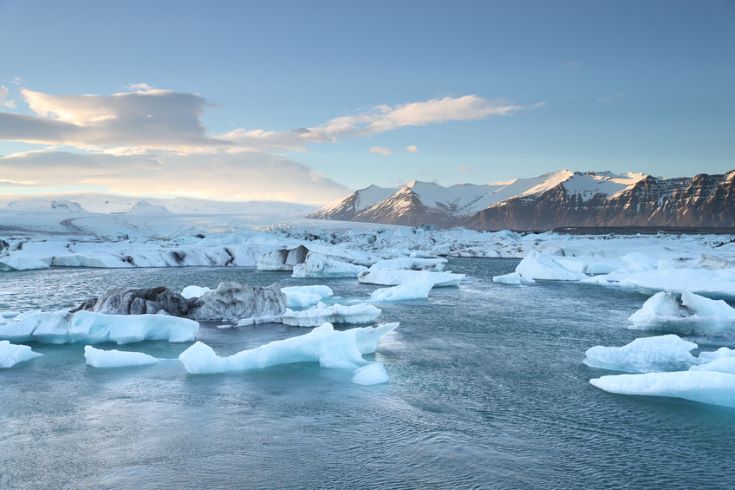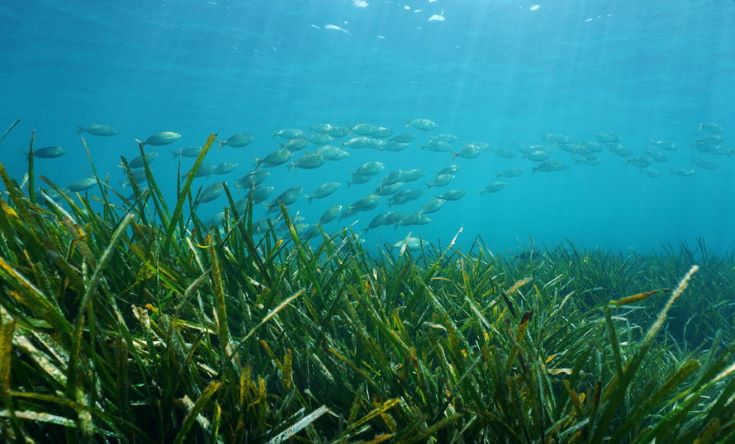IPCC Special Report released on the future of our ocean and cryosphere
Choices made now are critical for the future of our ocean and cryosphere according to the latest Intergovernmental Panel on Climate Change (IPCC) report. It highlights the urgency of prioritising timely, ambitious and coordinated action to address unprecedented and enduring changes in the ocean and cryosphere.

The ocean and the cryosphere – the frozen parts of the planet – play a critical role for life on Earth. A total of 670 million people in high mountain regions and 680 million people in low-lying coastal zones depend directly on these systems. Four million people live permanently in the Arctic region, and small island developing states are home to 65 million people. Photo: Antonio Guillem|123rf
The report reveals the benefits of ambitious and effective adaptation for sustainable development and, conversely, the escalating costs and risks of delayed action.Global warming has already reached 1°C above the pre-industrial level, due to past and current greenhouse gas emissions. There is overwhelming evidence that this is resulting in profound consequences for ecosystems and people. The ocean is warmer, more acidic and less productive. Melting glaciers and ice sheets are causing sea level rise, and coastal extreme events are becoming more severe.
The IPCC Special Report on the Ocean and Cryosphere in a Changing Climate, approved on September 24, 2019 by the 195 IPCC member governments, provides new evidence for the benefits of limiting global warming to the lowest possible level – in line with the goal that governments set themselves in the 2015 Paris Agreement. Urgently reducing greenhouse gas emissions limits the scale of ocean and cryosphere changes. Ecosystems and the livelihoods that depend on them can be preserved.
“The open sea, the Arctic, the Antarctic and the high mountains may seem far away to many people,” says Hoesung Lee, Chair of the IPCC. “But we depend on them and are influenced by them directly and indirectly in many ways – for weather and climate, for food and water, for energy, trade, transport, recreation and tourism, for health and wellbeing, for culture and identity.”
“If we reduce emissions sharply, consequences for people and their livelihoods will still be challenging, but potentially more manageable for those who are most vulnerable,” Lee says. “We increase our ability to build resilience and there will be more benefits for sustainable development.”
Knowledge assessed in the report outlines climate-related risks and challenges that people around the world are exposed to today and that future generations will face. It presents options to adapt to changes that can no longer be avoided, manage related risks and build resilience for a sustainable future. The assessment shows that adaptation depends on the capacity of individuals and communities and the resources available to them.
More than 100 authors from 36 countries assessed the latest scientific literature related to the ocean and cryosphere in a changing climate for the report, referencing about 7,000 scientific publications.
The IPCC Special Report is a key scientific input for world leaders gathering in forthcoming climate and environment negotiations, such as the UN Framework Convention on Climate Change Conference (COP25) in Chile in December.
“The world’s ocean and cryosphere have been ‘taking the heat’ from climate change for decades, and consequences for nature and humanity are sweeping and severe,” says Ko Barrett, Vice-Chair of the IPCC. “The rapid changes to the ocean and the frozen parts of our planet are forcing people from coastal cities to remote Arctic communities to fundamentally alter their ways of life,” she adds.
“By understanding the causes of these changes and the resulting impacts, and by evaluating options that are available, we can strengthen our ability to adapt,” Barrett says. “The Special Report on the Ocean and Cryosphere in a Changing Climate provides the knowledge that facilitates these kinds of decisions.”
Changing ocean ecosystems

Shifts in the distribution of fish populations have reduced the global catch potential. Communities that depend highly on seafood may face risks to nutritional health and food security. Photo: vilainecrevette|123rf
Warming and changes in ocean chemistry are already disrupting species throughout the ocean food web, with impacts on marine ecosystems and people that depend on them, the report said. To date, the ocean has taken up more than 90 per cent of the excess heat in the climate system. Ocean warming reduces mixing between water layers and, as a consequence, the supply of oxygen and nutrients for marine life.
The ocean has taken up between 20 to 30 per cent of human-induced carbon dioxide emissions since the 1980s, causing ocean acidification. Continued carbon uptake by the ocean by 2100 will exacerbate ocean acidification.
Major changes in high mountains affecting downstream communities
People in mountain regions are increasingly exposed to hazards and changes in water availability, the report said. Glaciers, snow, ice and permafrost are declining and will continue to do so. This is projected to increase hazards for people, for example through landslides, avalanches, rockfalls and floods.
Melting ice, rising seas
Glaciers and ice sheets in polar and mountain regions are losing mass, contributing to an increasing rate of sea level rise, together with expansion of the warmer ocean. While sea level has risen globally by around 15 cm during the 20th century, it is currently rising more than twice as fast – 3.6 mm per year – and accelerating, the report showed.
More frequent extreme sea level events
Sea level rise will increase the frequency of extreme sea level events, which occur for example during high tides and intense storms. Indications are that with any degree of additional warming, events that occurred once per century in the past will occur every year by mid-century in many regions, increasing risks for many low-lying coastal cities and small islands.
Declining Arctic sea ice, thawing permafrost
The extent of Arctic sea ice is declining in every month of the year, and it is getting thinner. If global warming is stabilised at 1.5°C above pre-industrial levels, the Arctic Ocean would only be ice-free in September – the month with the least ice – once in every hundred years. For global warming of 2°C, this would occur up to one year in three.
Some people living in the Arctic, especially indigenous peoples, have already adjusted their traveling and hunting activities to the seasonality and safety of land, ice and snow conditions, and some coastal communities have planned for relocation. Their success in adapting depends on funding, capacities and institutional support, the report shows.
Knowledge for urgent action
The report finds that strongly reducing greenhouse gas emissions, protecting and restoring ecosystems, and carefully managing the use of natural resources would make it possible to preserve the ocean and cryosphere as a source of opportunities that support adaptation to future changes, limit risks to livelihoods and offer multiple additional societal benefits.
“We will only be able to keep global warming to well below 2°C above pre-industrial levels if we effect unprecedented transitions in all aspects of society, including energy, land and ecosystems, urban and infrastructure as well as industry. The ambitious climate policies and emissions reductions required to deliver the Paris Agreement will also protect the ocean and cryosphere – and ultimately sustain all life on Earth,” says Debra Roberts, Co-Chair of IPCC Working Group II.
The report gives evidence of the benefits of combining scientific with local and indigenous knowledge to develop suitable options to manage climate change risks and enhance resilience. This is the first IPCC report that highlights the importance of education to enhance climate change, ocean and cryosphere literacy.
“The more decisively and the earlier we act, the more able we will be to address unavoidable changes, manage risks, improve our lives and achieve sustainability for ecosystems and people around the world – today and in the future,” Roberts says.
For more details, visit here
Thumbnail: Dia Karanouh|123rf